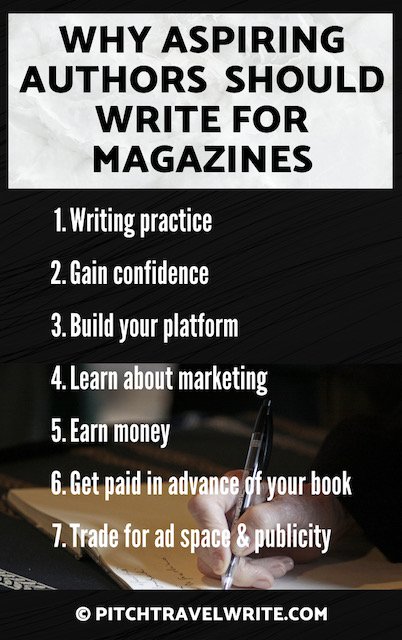- Home
- Business Basics for Travel Writers
- Assignment Letters
Seven Reasons Why
Assignment Letters Can Be Meaningless for Press Trips
By Karin Lepari
My friend Roy Stevenson and I have a difference of opinion on the merit of assignment letters (a.k.a. Letters of Assignment or LOA’s) for securing a seat on a press trip.
Though we are both professional writers with published bylines in numerous outlets, there are many ways to take that journey toward seeing your name and your article in the spotlight.
Some writers prefer to obtain LOA’s before they take a trip, while others prefer to stand on the merits of their outlets and ability to get articles published.
I understand the need by media hosts to weed out legitimate writers and an assignment letter helps them do this. Otherwise, they end up with bloggers who have low readership primarily encircling family and close-friends, or writers with assignments from obscure publications.

Travel is my primary writing genre, so it is essential that I get into the field to find stories and experience destinations in a way that I can capture the texture and vibrancy of the place. To do that, I seek press trips as a way to minimize my outlay while researching story possibilities.
I am an organic writer, meaning that my stories take form while I am on the road. This is where I discover the nuances, the hidden charms, and the off-the-beaten path stories.
But here’s the rub.
Many Convention & Visitors Bureaus (CVB’s), Destination Marketing Organizations (DMO’s), and public relations (PR) firms assume that an assignment letter from an editor can help them winnow serious journalists from pseudo writers. That way their press trip ends up with only qualified journalists who can guarantee published articles. Makes sense, doesn’t it?
1. Assignment Letter Abuse
Unfortunately, that’s not how it always works.
Over the years, I have seen writers produce LOAs from obscure publications ranging from their Home Owner Association and church newsletters to their own personal blogs, so they can snag a space on lucrative press trips. Come on guys, these aren’t real publications and the host/sponsor is getting less than what they are looking for – press coverage.
It’s common to ask that the assignment letter specify contact information for the assigning editor so the CVB/PR agency can follow up and verify that both the publication and the assignment are real.
I’ve seen cases where the editor is a friend of the writer and they are merely helping the writer get a free press trip, but don’t plan to publish the piece. I have also seen times when fraudulent writers generate LOAs, identify friends as editors, and there are no real publications.
Roy’s Comment: Dishonest “writers” are out there, and they give the rest of us a bad name. They make the tourism PR professionals “gun shy” and less trusting of bona fide travel writers. Some Tourism and PR professionals pass around the names of these shysters so they are eventually caught out.
2. Getting Assignment Letters Can Be Difficult for Freelancers
Some outlets just won’t give you assignment letters even though you may be on staff or a frequent contributor. I have a few outlets that fall in this category.
Others will only issue them to an inner circle of established writers.
As a freelancer, it can be difficult to get a “yes” to a pitch, and even more difficult to get an assignment letter. I work for several prestigious magazines that have an unwritten policy basically saying they will not issue assignment letters. Instead it is up to the writer to make his or her own arrangements and whatever is necessary to write the article. More often than not, expenses are not covered.
Roy’s Comments: Karin makes some good points here.
1. The days of magazines covering their writer’s travel expenses are long gone. We now have to rely on the goodwill of the tourism PRs, DMOs, and CVBs, at the destinations to cover our expenses.
2. This is exactly why you need to build up your list of outlets to the max, so that one or two of them will assist you by providing authentic LOAs. I have 200+ potential outlets and can generally find an editor or two happy to provide me with LOAs and assignments. If they don‘t pay well, I still may make the business decision not to take the trip.
3. I’ve also found that some editors will not write assignment letters. Often it’s the prestigious magazines that take this stand. This is their right, and we need to move past these magazines and seek out the ones that believe in helping the writers by providing assignment letters.
3. Some Freelancers Fudge on Outlets
I know many writers who list their outlets to include prestigious titles where they may have had one article published over a decade ago. One dated article does not equate to a current outlet. Even more surprising, is how many don’t get caught doing this.
It never ceases to amaze me how many list National Geographic Traveler as their outlet. And then there is the case of newspapers like the New York Times, the Los Angeles Times, and the Washington Post. Sponsors beware! If you should get an LOA from one of these outlets, it is their policy to NOT publish articles from subsidized press trips.
I was recently on a press trip where a writer claimed to have a blog for the New York Times. (I should mention that she was quite a diva as well!) Well, it turned out that she did indeed have a blog under a name different than what she shared with us. She was traveling under an alias so the New York Times wouldn’t know. I knew something was wrong when she didn’t always respond to her name.
Roy’s Comments:
1. When we send our request letter (email) to a tourism agency that is sponsoring a press trip, we should mention where we have been published previously. We do this to establish our credibility as an experienced travel writer. However, to suggest that these past bylines are outlets for the upcoming press trip is fraudulent.
2. The writer must make it clear that past bylines are simply to establish their travel writing background, and that these are NOT the outlets for the upcoming press trip. Further, the writer should clearly list the publications (print or online) where the stories about the upcoming press trip will be published. Having said that, if the writer does not list the intended outlets, the PR agency should demand to see them before hosting them on a trip.
3. Major newspapers do not accept assignments gleaned from comped trips, including press trips. See my PitchTravelWrite article about why I no longer write for newspapers.
4. Editors Come and Go
Editors leave and new ones come on board. Since many new editors may
have different philosophies than their predecessors, they may not honor
previous commitments.
I once had an assignment letter from a
bridal publication for an article on a luxury yacht cruise in wine
country. When I came back and wrote up the story, I unexpectedly found
out there was a new editor. Okay, that happens.
What shouldn’t
have happened is that she wanted nothing to do with her predecessor’s
commitments. I was left holding the bag and now found myself
frantically searching for a new outlet for my orphaned story. After
all, it was my good name I wanted to protect. I chose to never write
for that publication again.

Roy’s Comments:
This has occasionally happened to me. It’s all part of the rough-and-tumble of freelance writing. It will probably happen to you if it hasn’t already.
The opposite has also happened. I recently had a positive experience where the new editor of a UK magazine was fine with carrying my unpublished articles over to his “new” magazine.
What can you do when a new editor refuses to publish your work? Work hard to find another outlet for the story. If you make an honest attempt at finding a new outlet and it still doesn’t work out, you should let the press trip organizer/PR agency know that you made an honest attempt to find a new home for the article. They will be disappointed, but they will understand, because this has happened to them before, too. They will probably not scratch you off their press list. Just make sure you deliver for them on future press trips.
5. Magazines and Newspapers Fold
The dreaded words that writers never want to read are that the magazine or newspaper will cease operations. Unfortunately, you have already taken a press trip based on an assignment. The only course you can take is to seek a “kill” fee from the publisher and to find a new home for your orphaned article.
Over the years I’ve had many magazines cease operations even as they were holding on to an article from me. In some cases they published the article in their last issue but I had to get in line with other creditors to get paid. In other cases I’ve been paid for the article but it never sees the light of day.
Roy’s Comments: Yes, this happens, too. It’s happened to me a few times and it will probably happen to you during your writing career. Think of freelance writing like the Wild West: after you’ve been shot you have to pick yourself up, dust yourself off, and get back to work. If you can't find a home for your story in a print magazine, you can get your story published online and fulfill your obligation for the press trip. See comments in previous section.

If you don’t know where to find quality websites to help build your online portfolio, or you're looking for a fast list of websites to pitch your stories, I wrote an eBook, 125 Websites That Want to Publish Your Travel Stories.
The 125 websites listed in this eBook are all sites where I would be proud to see my articles published (and many where my articles are published!). More than 50 of these websites pay their writers!
6. Assignment Letters Might Be Used to Cherry-Pick
On the other hand, I distinctly remember several times when I produced assignment letters from carefully targeted magazines. The demographics were a great match for the press tour host.
For example, I produced two LOAs for a press trip to South Africa – one was a large city magazine and the other was a prestigious executive traveler magazine. I was told I was in.
However, about 3 weeks before departure I found out I was out. The reason given was that the PR firm came up with another writer that had better LOAs!
I was literally left speechless because that meant I had to go back to both publications letting them know I couldn’t deliver the articles. Needless to say, I never wrote for either magazine again – even though I tried.
Another more recent episode occurred when I was approached by a PR firm to apply for a press trip to Mexico. Since I have written and contributed many articles over the years on Latin America, it made sense that I would be on their radar screen. I was even allowed to invite a friend, who promptly asked for time off from work.
A week after submitting my application and only days before the trip was to leave; I was told I wasn’t selected. The hosts worked down a list from a previous year. I was furious that my friend had asked for time off and now I had to tell her I wasn’t chosen. I asked the PR firm that in the future to only approach me for press trips when they were truly interested in my talents and outlets.
If I am going to invest the time and resources to procure an LOA, I expect that a mutual commitment will occur – a quid pro quo relationship.
Roy’s Comments: This hasn’t yet happened to me and I hope it never will. I would discontinue my relationship with a PR company if they treated me like this.
7. Invitations Can Be Ambiguous
Host organizations might be “gaming” who is chosen to participate in a future press trip by issuing an open call for writers rather than a personal invitation. The words are carefully chosen and intentionally ambiguous.
Unfortunately, many writers assume it is a personal invite for a destination and are surprised when they learn down the road that they aren’t accepted. As one writer put it to me, “First you are invited and then you are unceremoniously disinvited.”
This technique is sometimes used to “cherry pick” journalists from a larger pool of all who have applied. Too bad if you aren’t picked and you have an assignment letter.
Roy’s Comments: This hasn’t yet happened to me and I hope it never will. I would discontinue my relationship with a PR company if they treated me like this.
Karin’s Thoughts on Improving the System
What I would like to see is for press trip sponsors to focus more on the track record of an individual writer. Ultimately, this should be more meaningful than to accept a meaningless assignment letter as the criteria to choose who goes on the press trip. Sure, this may take a tad more research on the part of the sponsor, but the dividends are greater.
I am also a firm believer that hosts should look at professional memberships if for no other reason than if the member exhibits unprofessional or bad behavior, the host can at least report it to the organization.
Some organizations like the International Food Wine and Travel Writers Association (IFWTWA) even have a policy that if you go on one of their sponsored trips that “No clips means no future trips.” Others like Society of American Travel Writers (SATW) expect to uphold their members to a professional level of behavior.
More related posts . . .
Quid Pro Quo: Travel Writers and Press Trips
Press Trips for Travel Writers
Low Cost Travel and Press Trips

Special Report:
How to Land Press Trips and Fam Tours
I've written a guide about how to land press trips. It will tell you everything you want to know about how to get into the inner circle and get invited on regional, national and international press trips.

Roy Stevenson is a professional travel writer and the author of www.PitchTravelWrite.com. Over the past ten years, he’s had more than 1000 articles published in 200 magazines, trade and specialty journals, in-flights, on-boards, blogs and websites and has traveled on assignment around the U.S. and to dozens of international destinations.
IF YOU ENJOYED THIS POST, GET UPDATES. IT'S FREE.














